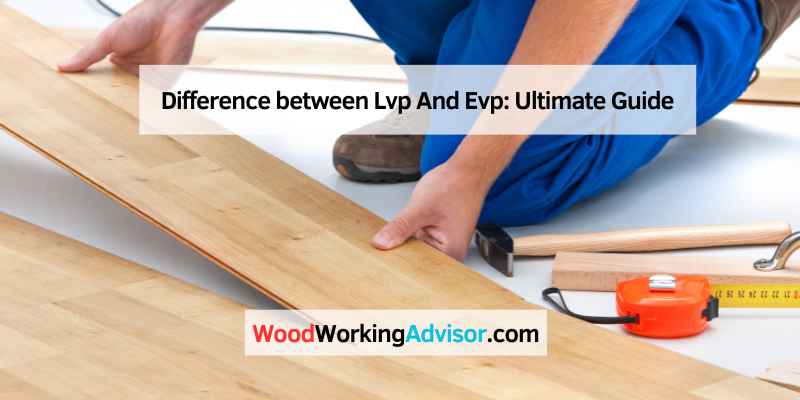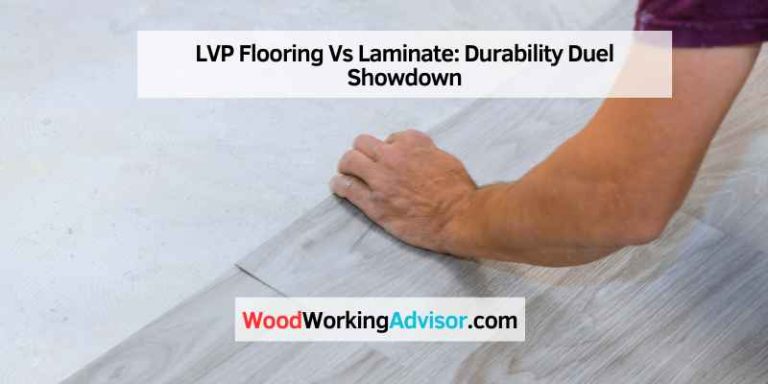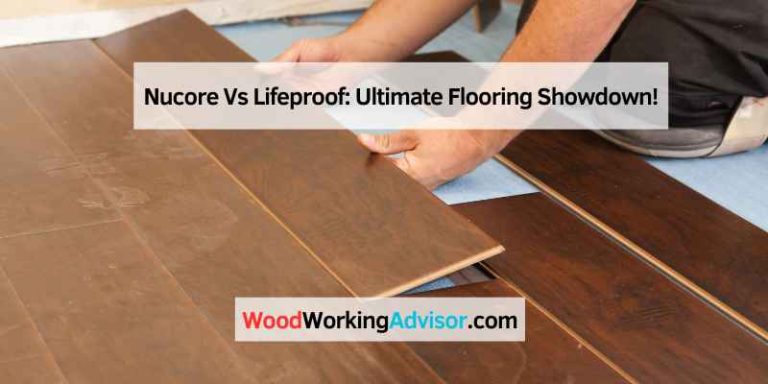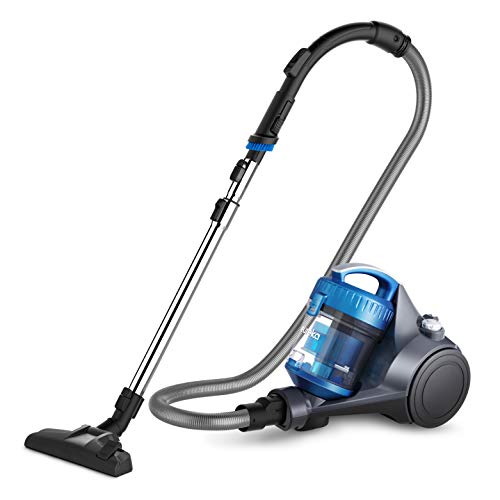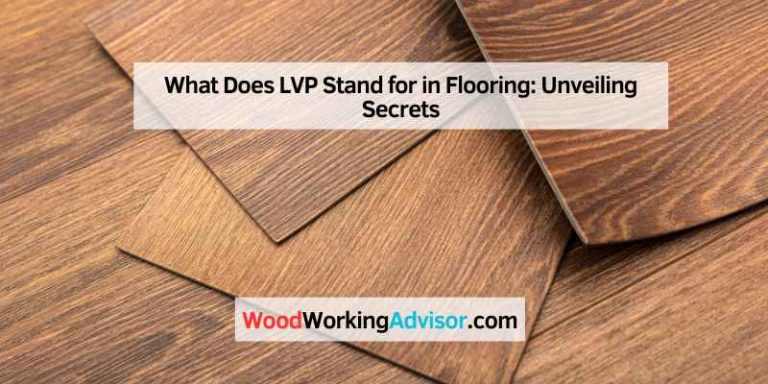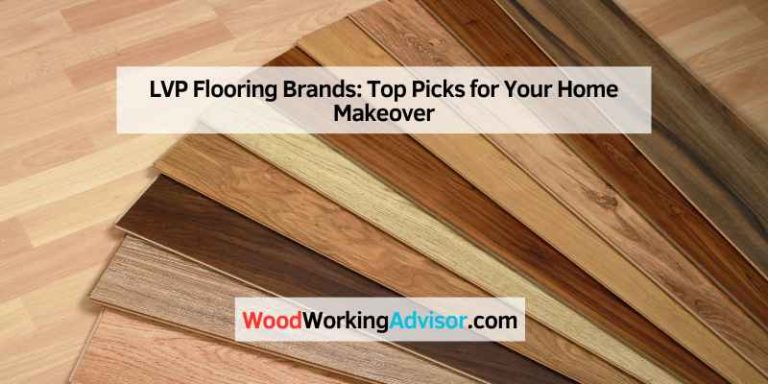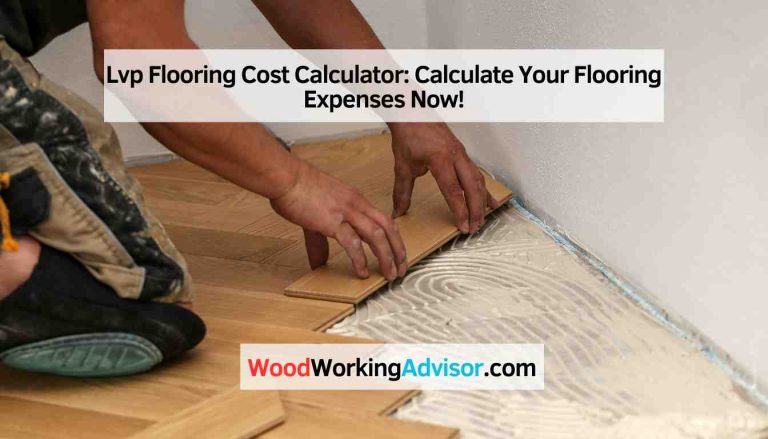Difference between LVP And EVP: Ultimate Guide
EVP is slightly more durable and easier to install compared to LVP due to its thickness and interlocking, glue-free installation method. EVP, or Engineered Vinyl Plank, has a rigid core that is excellent for areas with minor subfloor irregularities and offers added comfort and sound absorption with a bottom cork layer.
On the other hand, LVP, or Luxury Vinyl Plank, is thinner and can contour to subfloor imperfections. Both EVP and LVP have PVC core layers, but EVP is typically thicker than SPC and LVP flooring options. Understanding the key differences between EVP and LVP can help you make an informed decision when choosing the right flooring for your space.
Introduction To LVP And EVP
When it comes to choosing the right flooring for your space, it’s essential to understand the key differences between Luxury Vinyl Plank (LVP) and Engineered Vinyl Plank (EVP). Both options have gained popularity for their durability, affordability, and versatility, making them ideal choices for residential and commercial applications.
The Basics Of LVP
Luxury Vinyl Plank, or LVP, is a type of vinyl flooring that mimics the look of natural hardwood. It is constructed with multiple layers, including a rigid core, vinyl top layer, and wear layer for added protection. LVP is available in various styles, colors, and textures, offering a wide range of design possibilities for any space. It is known for its water resistance, making it suitable for areas prone to moisture, such as kitchens, bathrooms, and basements.
EVP Explained
Engineered Vinyl Plank, or EVP, is a newer type of vinyl flooring that features a more advanced construction. It typically consists of a rigid core made of composite materials, a vinyl layer, and a top wear layer. EVP is designed to be thicker and sturdier than LVP, providing enhanced stability and impact resistance. Additionally, EVP often comes with built-in underlayment for improved sound absorption and comfort underfoot.
Material Composition
EVP flooring is slightly more durable and easier to install than LVP due to its interlocking, glue-free installation method. However, LVP can be constructed thinner and contour to subfloor imperfections, making it a better option for some situations. Ultimately, the choice between EVP and LVP depends on individual needs and preferences.
LVP Components
The main components of Luxury Vinyl Plank (LVP) are PVC, calcium carbonate, plasticizers, stabilizers, and a wear layer.
What Makes Up EVP
Engineered Vinyl Plank (EVP) comprises a rigid core layer, a top vinyl layer, an underlayment, and sometimes an attached pad for stability and sound absorption.
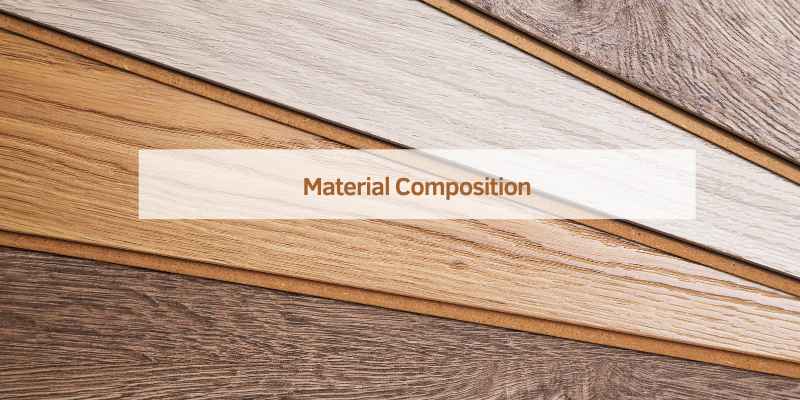
Durability Factors
EVP and LVP are both popular flooring options, but there is a difference in durability. EVP is slightly more durable than LVP and has an interlocking, glue-free installation method, making it easier to install. However, LVP can contour to subfloor imperfections and is available in thinner constructions.
Wear And Tear On LVP
When it comes to durability, one of the key factors to consider is the wear and tear on LVP (Luxury Vinyl Plank) flooring. LVP is known for its resilience and ability to withstand daily use without showing signs of wear. The wear layer of LVP is a protective coating that helps to prevent scratches, scuffs, and dents from everyday activities such as foot traffic, furniture movement, and pet claws.
This wear layer is typically made of a clear vinyl or urethane material that is designed to resist damage and maintain the appearance of the flooring over time. The thickness of the wear layer can vary depending on the quality of the LVP, with thicker wear layers offering increased durability and longevity.
Additionally, LVP is also resistant to stains, making it a great choice for high-traffic areas such as kitchens, entryways, and living rooms. This means that spills and accidents can be easily cleaned up without leaving a permanent mark on the flooring.
EVP Resilience
On the other hand, EVP (Engineered Vinyl Plank) flooring offers a different level of resilience compared to LVP. EVP is constructed with a rigid core made of fiberboard, which provides additional stability and strength. This rigid core makes EVP more resistant to impacts and indentations, making it a suitable option for areas with minor irregularities in the subfloor.
In addition to its rigid core, EVP often features a bottom layer of cork, which serves as a cushioning material. This cork layer not only adds comfort underfoot but also helps with sound absorption, reducing noise levels within the space.
EVP also offers excellent moisture resistance, making it a suitable choice for areas prone to moisture, such as bathrooms and basements. The combination of the rigid core and moisture resistance ensures that EVP can withstand the test of time, maintaining its appearance and functionality in various environments.
Overall, both LVP and EVP have their own unique durability factors. LVP excels in wear and tear resistance, while EVP showcases resilience and moisture resistance. The choice between the two ultimately depends on the specific needs and preferences of the homeowner or business owner.
Installation Processes
When it comes to the installation processes of Luxury Vinyl Plank (LVP) and Engineered Vinyl Plank (EVP), there are some key differences to consider. Let’s explore the installation methods for each type of flooring to understand how they differ.
How To Install LVP
Installing Luxury Vinyl Plank (LVP) is a relatively straightforward process that can often be done as a DIY project. The installation method for LVP typically involves a floating floor technique, where the planks interlock and lay directly over the subfloor without the need for adhesive. This interlocking system allows for a quick and efficient installation, making it a popular choice for homeowners looking to update their flooring without extensive labor or time.
EVP Installation Ease
Engineered Vinyl Plank (EVP) offers a user-friendly installation process, thanks to its click-and-lock mechanism. This method allows the planks to securely snap together, creating a stable and durable floor without the use of adhesive. The ease of installation makes EVP a practical option for those seeking a hassle-free flooring solution.
Design And Aesthetic Options
When comparing LVP and EVP, it’s essential to consider the design and aesthetic options. EVP typically offers a thicker and more durable option with a rigid core, while LVP is thinner and may not have the same interlocking installation method.
These differences can impact the overall look and feel of the flooring in your space.
Design and Aesthetic Options are one of the most important factors when it comes to choosing the right flooring for your space. Both LVP and EVP offer a wide range of design options to suit any style and aesthetic preference. LVP styles are designed to mimic the look of natural materials such as wood, stone, and ceramic tile. With LVP, you can choose from a variety of plank sizes, colors, and textures to create a custom look for your space. On the other hand, EVP finishes typically have a more realistic wood texture and come in a variety of colors and finishes to complement any decor.
When it comes to LVP styles, you can choose from a variety of plank widths, ranging from narrow to wide, to create a custom look for your space. LVP also offers the option of mixing and matching different plank sizes and colors to create a unique and personalized design. Additionally, LVP styles can be installed in a variety of patterns, such as herringbone, chevron, and diagonal, to add visual interest to your space.
EVP finishes, on the other hand, typically have a more realistic wood texture and come in a variety of colors and finishes to complement any decor. EVP finishes can be smooth or embossed to mimic the look and feel of real wood, and they can come in a variety of plank sizes to suit any space. Additionally, EVP finishes can be installed with or without grout lines to create a seamless look.
In conclusion, both LVP and EVP offer a wide range of design and aesthetic options to suit any style and preference. Whether you prefer the look of natural materials or a more modern and contemporary design, both LVP and EVP have something to offer. So, it’s important to consider your personal style and the design of your space when choosing between LVP and EVP.
Cost Comparison
When comparing LVP and EVP flooring, there are a few key differences to consider. EVP is slightly more durable and easier to install due to its interlocking, glue-free installation method. LVP, on the other hand, is thinner and may contour to subfloor imperfections.
When it comes to choosing between luxury vinyl plank (LVP) and engineered vinyl plank (EVP), cost is an important factor to consider. While both options are more affordable than traditional hardwood flooring, there are differences in pricing.
LVP Pricing:
LVP is typically the less expensive option of the two. It is thinner than EVP and does not have the interlocking, glue-free installation method that EVP does. However, LVP still offers a durable and waterproof flooring solution at a lower price point.
Investing in EVP:
EVP is slightly more expensive than LVP, but it offers added benefits. It is thicker and has a rigid core made of fiberboard, making it more durable and able to handle minor irregularities in the subfloor. EVP also has a bottom layer of cork for added cushioning, comfort, and sound absorption.
When deciding between LVP and EVP, it is important to consider the cost and benefits of each option. While LVP may be the more budget-friendly choice, EVP offers added durability and comfort. Ultimately, the decision will depend on your specific needs and preferences.
Performance In Various Environments
When it comes to choosing the right type of vinyl flooring for your space, it’s important to consider their performance in various environments. Both Luxury Vinyl Plank (LVP) and Engineered Vinyl Plank (EVP) have their unique characteristics that make them suitable for different conditions.
LVP In Moist Conditions
LVP is well-suited for areas with high moisture levels, such as bathrooms and basements. Its water-resistant properties make it an ideal choice for environments prone to occasional spills or humidity.
EVP For Uneven Subfloors
One of the key advantages of EVP is its ability to accommodate uneven subfloors. The rigid core construction of EVP makes it more forgiving of minor irregularities in the subfloor, providing a stable and durable flooring solution for areas with less-than-perfect subfloor conditions.
The Verdict On Lvp Vs. Evp
The verdict on LVP vs. EVP lies in their durability and installation ease. EVP, with its rigid core and interlocking method, is slightly more durable and easier to install compared to the thinner LVP without interlocking features. These differences impact their performance and suitability for various settings.
When it comes to choosing between Luxury Vinyl Plank (LVP) and Engineered Vinyl Plank (EVP), it’s important to weigh the pros and cons of each to make an informed decision. Both options have their own advantages and drawbacks, and understanding these differences can help you select the best flooring solution for your specific needs.
Pros And Cons Of LVP
Before making a decision, it’s essential to consider the advantages and disadvantages of LVP:
- Pros:
- Durable and scratch-resistant
- Wide range of styles and designs
- Waterproof, making it suitable for areas prone to moisture
- Easy to clean and maintain
- Cons:
- Thinner construction may not effectively mask subfloor imperfections
- Typically requires adhesive for installation
Advantages And Drawbacks Of EVP
When evaluating EVP, it’s important to consider its specific advantages and drawbacks:
- Advantages:
- Enhanced durability and stability due to the rigid core
- Simple and quick installation with interlocking, glue-free method
- Excellent sound absorption and comfort, often featuring a bottom layer of cork
- Can be installed over minor subfloor irregularities
- Drawbacks:
- Slightly thicker construction compared to LVP
- May have fewer design options compared to LVP
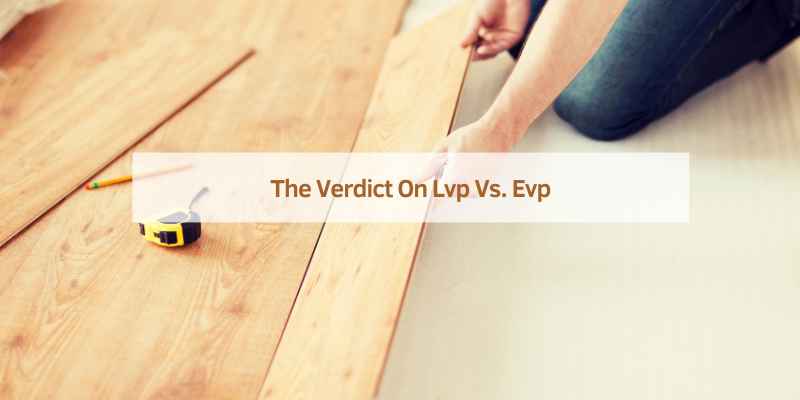
Frequently Asked Questions
Is EVP Flooring Better Than LVP?
EVP flooring is slightly more durable and easier to install compared to LVP because of its interlocking, glue-free installation method and thicker construction.
What Is Better LVP Vs RVP?
LVP (Luxury Vinyl Plank) and RVP (Rigid Vinyl Plank) have some differences. RVP is usually thicker and better at hiding subfloor imperfections. It also sometimes comes with a pre-attached pad for added stability and insulation. LVP, on the other hand, can be constructed thinner and is easier to install with its interlocking, glue-free method.
Ultimately, the choice between LVP and RVP depends on your specific needs and preferences.
What Does EVP Mean In Flooring?
EVP in flooring stands for Engineered Vinyl Plank, featuring a rigid core for durability and installation ease.
Is EVP The Same As Engineered Hardwood?
EVP is similar to engineered hardwood, but EVP has a more durable and easier-to-install interlocking design.
Conclusion
When choosing between LVP and EVP flooring, consider EVP for its durability and easier installation. With EVP’s rigid core and interlocking method, it offers added stability and insulation. On the other hand, LVP may be preferable for contouring to subfloor imperfections.
Make an informed decision based on your specific needs.

